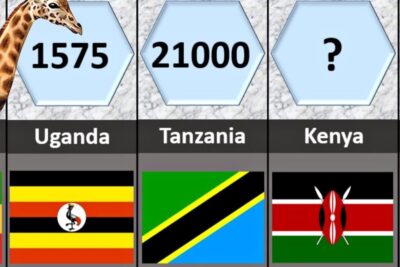
Is Antarctica a Continent or Not? Unraveling the Debate

Antarctica, the southernmost continent on Earth, has long been a subject of fascination and debate. Known for its extreme cold temperatures, vast ice sheet, and unique wildlife, this remote and mysterious land has captured the imagination of scientists and explorers for centuries. One ongoing debate in the scientific community revolves around the classification of Antarctica as a continent. While it is commonly referred to as a continent, some argue that it does not meet the traditional criteria for continental status.
In this article, we will delve into the question of whether Antarctica should be considered a continent or not. We will explore the criteria that define a continent and examine how Antarctica fits into these parameters. We will also discuss the different perspectives and arguments put forth by scientists on both sides of the debate. By the end, readers will have a better understanding of the complexities surrounding the classification of Antarctica and can draw their own conclusions on the matter.
Index
- What defines a continent and why is there a debate about Antarctica?
- Is Antarctica considered a continent by all geographers?
- Arguments supporting Antarctica as a continent: geological and geographical evidence
- Arguments against Antarctica as a continent: political and scientific perspectives
- Conclusion
What defines a continent and why is there a debate about Antarctica?
When it comes to defining what constitutes a continent, there are a few key factors that are typically considered. These factors include size, geological characteristics, and the presence of a distinct landmass. However, the classification of Antarctica as a continent has been the subject of debate among scientists and geographers for many years.
Antarctica is a massive landmass, covering an area of about 14 million square kilometers. It is surrounded by the Southern Ocean and is home to the South Pole. It meets the size criteria for continent classification, but there are other factors that have raised questions about its status.
One of the main arguments against considering Antarctica as a continent is its unique geological characteristics. Unlike the other continents, which are primarily composed of a mixture of continental and oceanic crust, Antarctica is mostly made up of continental crust. This has led some to argue that it should be classified as a large island rather than a continent.
Additionally, the presence of ice sheets that cover almost the entire landmass of Antarctica has also sparked debate. Some argue that the ice sheets make it difficult to define Antarctica as a continent since they effectively obscure the underlying geology. They contend that the ice sheets should be considered a separate entity and that the landmass beneath should not be classified as a continent.
Despite these arguments, the prevailing consensus among scientists and geographers is that Antarctica is indeed a continent. While its unique geological characteristics and extensive ice cover make it distinct from the other continents, it still meets the criteria for continent classification based on its size and the presence of a distinct landmass.
Is Antarctica a Continent or Not? The Verdict
In conclusion, while there is ongoing debate about the classification of Antarctica, the prevailing consensus is that it is indeed a continent. Its massive size, distinct landmass, and geographical features set it apart from other landmasses, even though its unique geological characteristics and extensive ice cover have sparked some discussion. Ultimately, the classification of Antarctica as a continent is a complex topic that continues to be explored and debated by experts in the field.
Is Antarctica considered a continent by all geographers?

The classification of Antarctica as a continent is a topic that has sparked much debate among geographers. While most experts agree that it meets the criteria to be considered a continent, there are some who question its status. Let's delve into the arguments on both sides.
The case for Antarctica as a continent
Those who argue that Antarctica is indeed a continent point to several factors. First and foremost is its size. Antarctica is the fifth-largest continent, covering an area of approximately 14 million square kilometers. It is larger than Europe, making it a significant landmass.
Another aspect that supports its classification as a continent is its distinct geological and geographical features. Antarctica is separated from other landmasses by the Southern Ocean and is surrounded by the Antarctic Convergence. This isolation and unique ecosystem set it apart from other regions.
Furthermore, Antarctica has its own ice sheet, which is the largest on Earth and contains about 90% of the world's ice. This ice sheet has a significant impact on global climate and sea level rise, further emphasizing the importance of Antarctica as a distinct continent.
The arguments against Antarctica as a continent
On the other side of the debate, some geographers argue that Antarctica does not meet the criteria to be considered a continent. One of the main points raised is the lack of a permanent population. Unlike other continents, Antarctica is uninhabited by humans year-round. It is primarily visited by scientists and researchers who temporarily reside there.
Another argument against its classification as a continent is the fact that it is covered almost entirely by ice. Some geographers argue that the presence of ice should disqualify it from being considered a continent, as it does not meet the traditional definition of a landmass.
Additionally, there are those who believe that Antarctica should be considered part of the larger continent of Australia/Oceania. They argue that Antarctica's proximity to this region and its similar geological characteristics make it more fitting to be classified as a subcontinent.
The conclusion
In conclusion, while the majority of geographers consider Antarctica to be a continent, there is still ongoing debate about its classification. Its size, unique features, and impact on global climate support its status as a continent. However, the absence of a permanent population and the dominance of ice are factors that challenge this classification. Ultimately, the debate continues, and future research may shed more light on the topic.
Arguments supporting Antarctica as a continent: geological and geographical evidence
There are several compelling arguments that support the classification of Antarctica as a continent. These arguments are based on geological and geographical evidence that highlight the unique characteristics of Antarctica.
Firstly, Antarctica meets the criteria for a continent based on its geological features. It is a landmass that is separate and distinct from the surrounding ocean floor. The continent is composed of thick continental crust, which is different from the thinner oceanic crust found beneath the surrounding Southern Ocean.
Additionally, Antarctica has its own tectonic plate, known as the Antarctic Plate, which further supports its classification as a continent. This plate is separate from the neighboring South American, African, and Australian plates. The presence of a distinct tectonic plate is a key characteristic of a continent.
Geographically, Antarctica is also unique. It is the fifth-largest continent in terms of land area, covering approximately 14 million square kilometers. This vast expanse of land sets Antarctica apart from smaller landmasses, such as islands or archipelagos.
Furthermore, Antarctica is surrounded by the Southern Ocean, which acts as a natural boundary and separates it from other landmasses. This oceanic barrier reinforces the notion that Antarctica is a separate continent.
In conclusion, the geological and geographical evidence strongly supports the classification of Antarctica as a continent. Its distinct geological features, including its own tectonic plate and thick continental crust, as well as its large land area and natural boundary, all contribute to its status as a continent.
Remember to keep researching and studying the topic to ensure that the content is accurate and up-to-date. Also, make sure to check for any instances of plagiarism and provide unique and original content for your readers.
Arguments against Antarctica as a continent: political and scientific perspectives
There are differing opinions regarding whether Antarctica should be considered a continent or not. Some argue that it is not a continent due to political and scientific reasons.
From a political perspective, some countries do not recognize Antarctica as a continent. The Antarctic Treaty System, which governs the region, does not define Antarctica as a continent but rather as a "territory for peaceful purposes." This lack of formal recognition by some countries contributes to the debate.
Scientifically, there are arguments against Antarctica being classified as a continent. One of the main reasons is its unique geological characteristics. Unlike other continents, Antarctica is mostly covered by ice, with only a small portion of its landmass exposed. This has led some scientists to question whether it meets the criteria to be classified as a continent.
Another scientific argument is the lack of distinct tectonic boundaries. Most continents are defined by their distinct tectonic plates, but Antarctica does not have clearly defined boundaries. Instead, it is part of the larger Antarctic Plate, which includes parts of the surrounding ocean floor.
Additionally, some argue that Antarctica should be considered an archipelago rather than a continent. This is because the continent is made up of a series of islands that are connected by the underlying continental shelf.
However, it is important to note that there are also strong arguments in favor of considering Antarctica as a continent. These arguments highlight its size, geological stability, and distinct ecosystems.
Conclusion
While there are valid arguments against classifying Antarctica as a continent, the debate is ongoing. The political and scientific perspectives contribute to the discussion, but ultimately, the classification of Antarctica as a continent or not may vary depending on different viewpoints and definitions.
Si leer artículos parecidos a Is Antarctica a Continent or Not? Unraveling the Debate puedes ver la categoría Science and Technology.






Leave a Reply